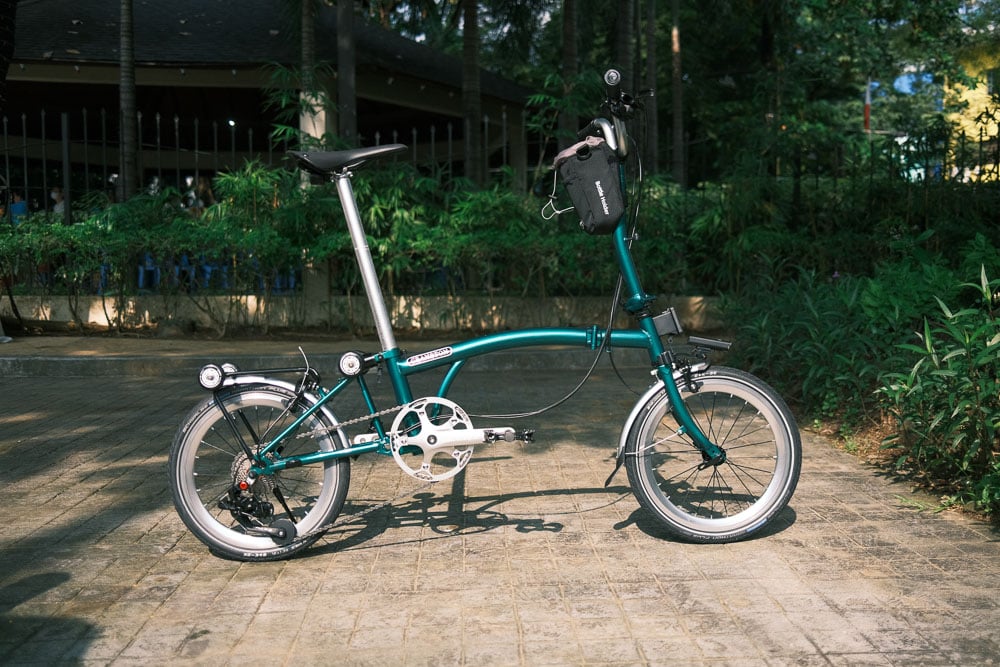
A trifold is a bicycle you can bring practically anywhere. However, the main limitation of my 3Sixty was its internal gear hub (IGH). Sturmey-Archer’s three-speed IGH is an intricate piece of engineering, having been around since 1902. Yet, it is also a highly specialized system that no ordinary technician can fix.
Mine doesn’t always go out of tune. But the few times I do encounter shifting problems are a big hassle. You don’t want the lightest gear to be unusable, especially with hilly terrain.
Transporting it to Tryon Marketing costs more than the service itself (and I don’t want to ride a motorcycle taxi again). Also, the downtime isn’t helpful considering the trifold is my daily commuter.
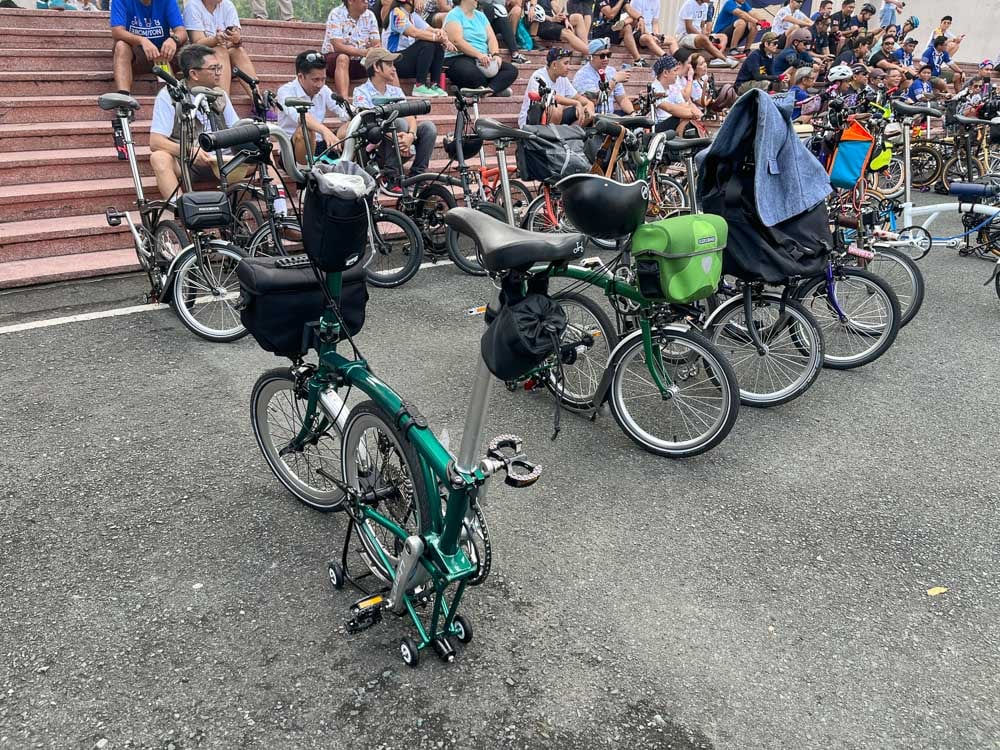
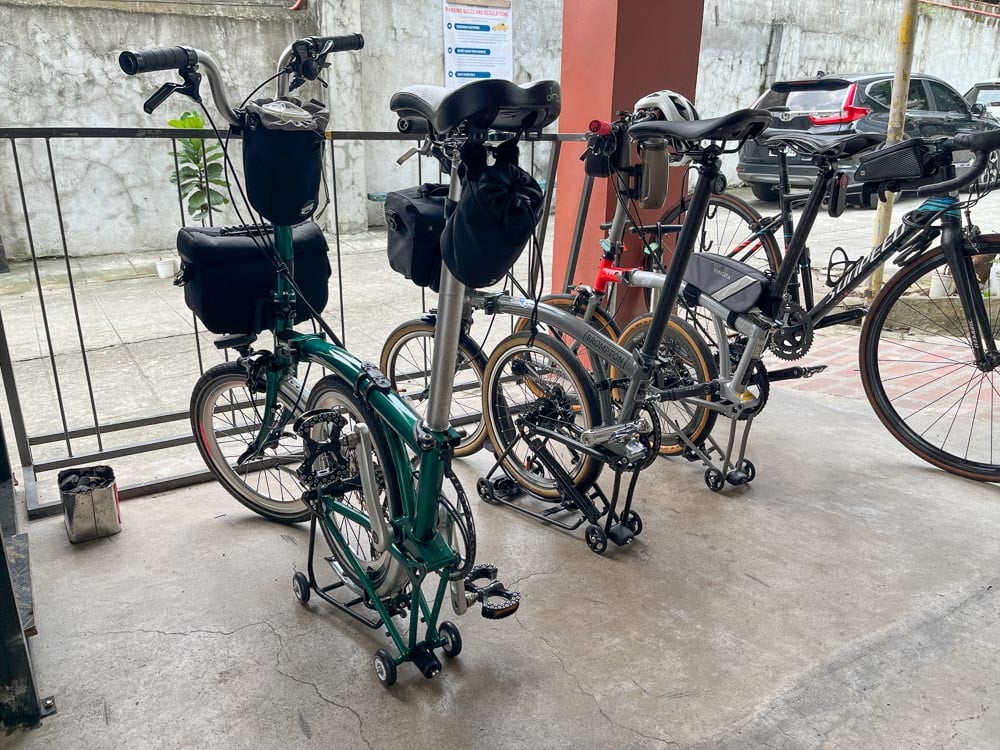
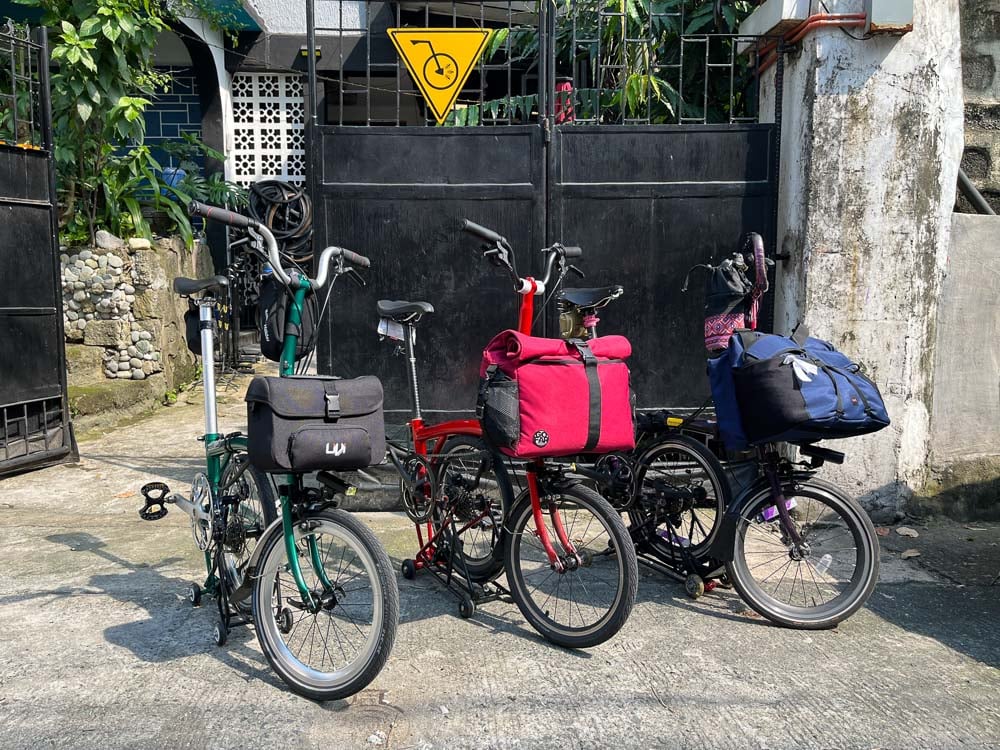
When it was my cousin’s turn to get her own trifold, I went to Domz Bikes in Las Piñas via P2P bus to check out a secondhand Pikes with her. Turns out it had shifting problems like mine. Unwilling to wait for the shop owner/mechanic to return from abroad, she settled for a brand-new Cranston for P29,800.
To the untrained eye, all of these trifolds essentially look the same with a steel frame and 16-inch wheels. But the selling point of the Cranston is its nine-speed Shimano drivetrain. With an 11-32T cassette at the rear, it has a much wider range, and it also uses standard components that can be serviced by a normal mechanic—including quick-release (QR) skewers.
Impressed by it, I seriously considered getting my own—especially since the 3Sixty didn’t look like it was getting fixed anytime soon. But I made sure to have a good chat with the store to know what I was getting into. Convinced that it was the more practical option, I was able to purchase my cousin’s Cranston since there was a different color that she liked more.
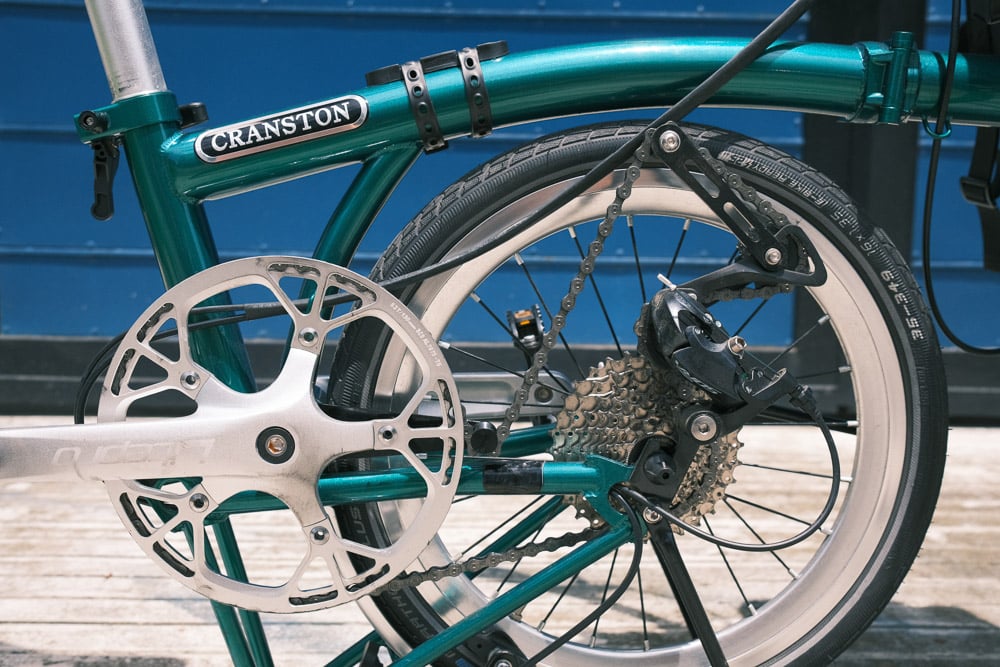
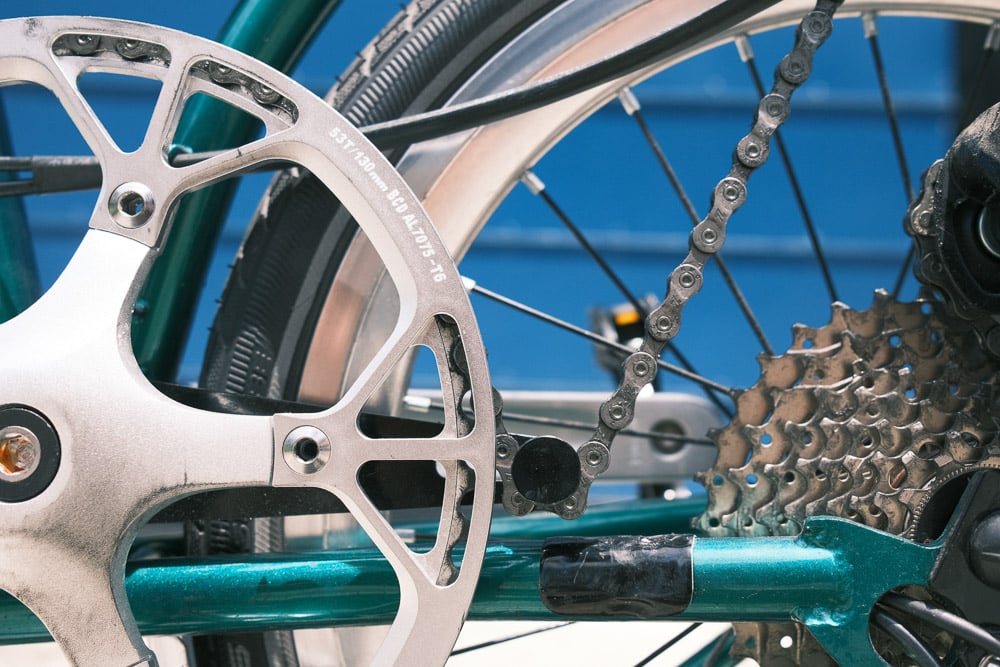
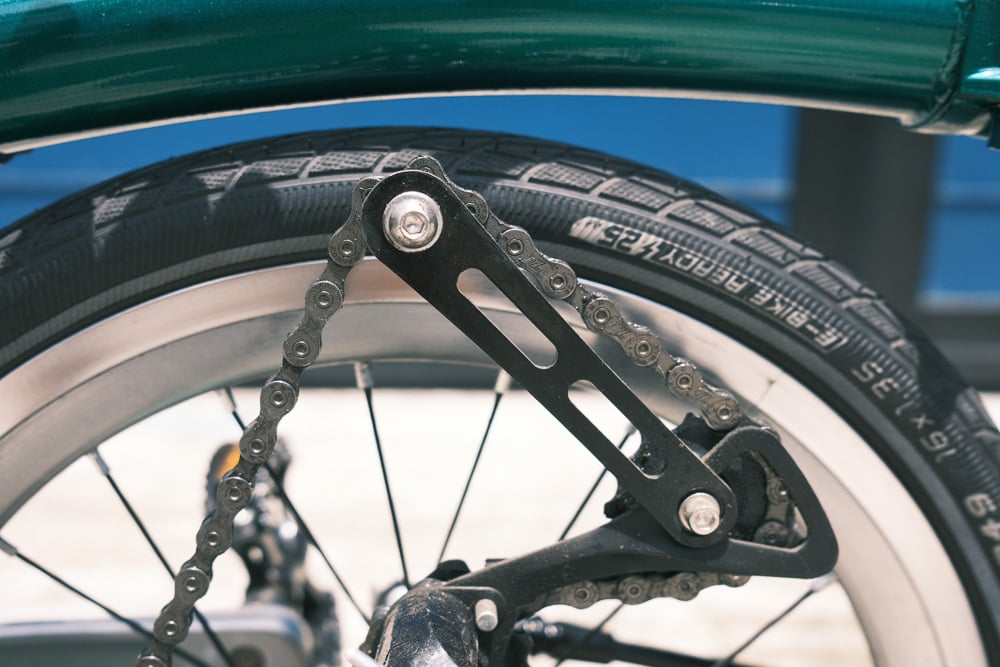
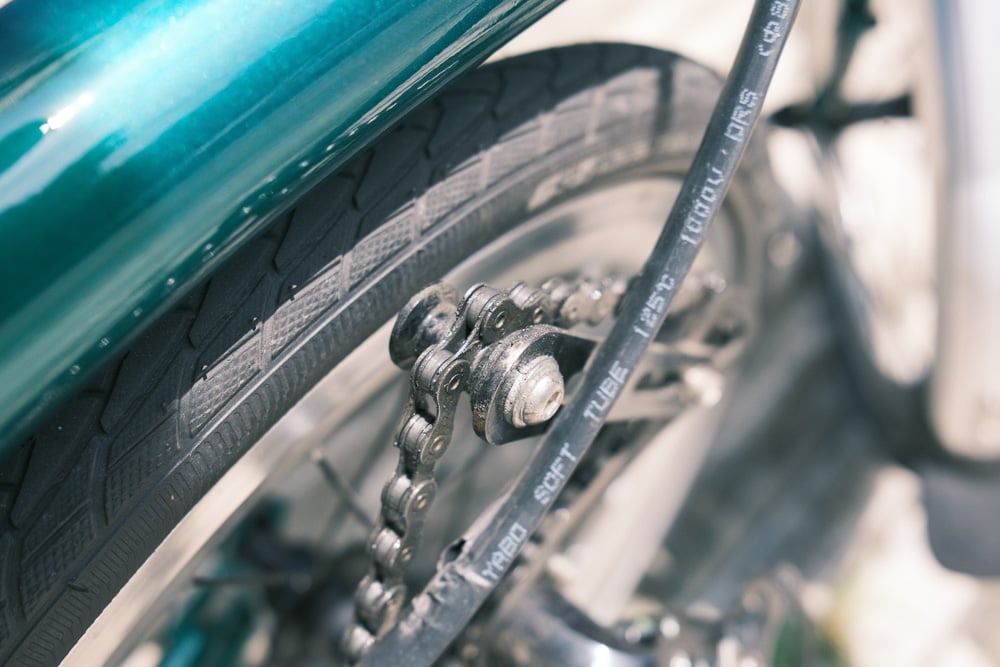
In spite of these advantages, the setup isn’t perfect. It’s perfectly fine when riding, but the complications arise when folding. The chain needs tensioners to prevent it from dropping when the rear triangle swings inward.
One thing to keep in mind is that the bike needs to be in the right gear before folding the frame to prevent the tensioner from hitting the tire or scraping against the sidewall.
Also, the rear triangle flares out more to accommodate the wider spacing between the dropouts (the notches where the rear hub is attached to the frame). If you’re not careful, it’s easy for the crank arm to leave a scratch.
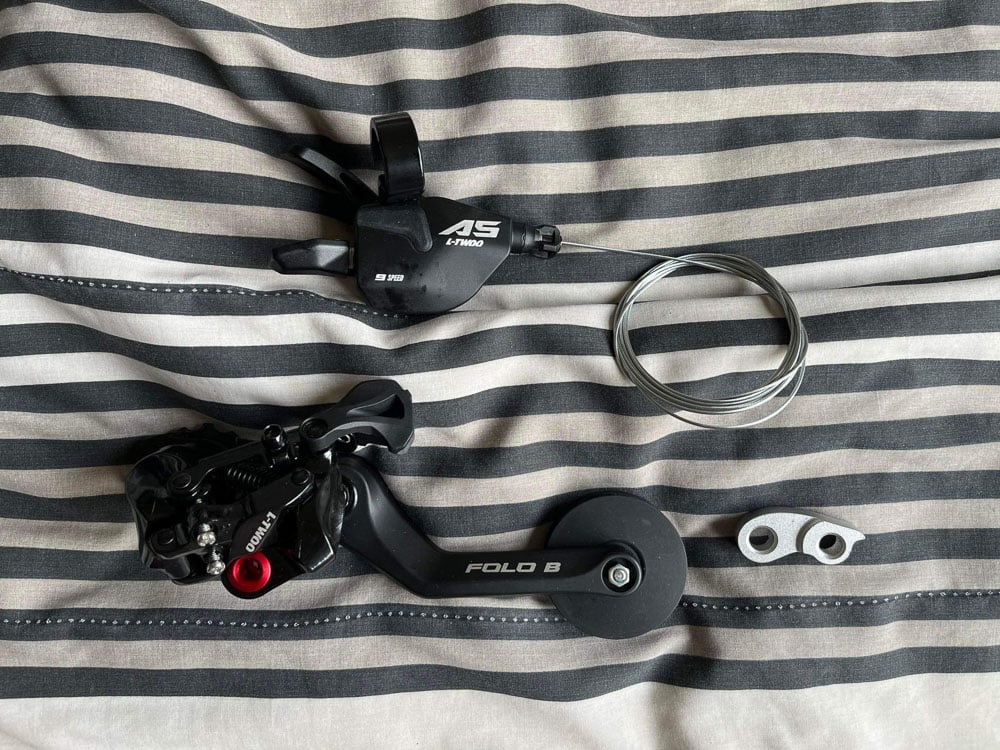
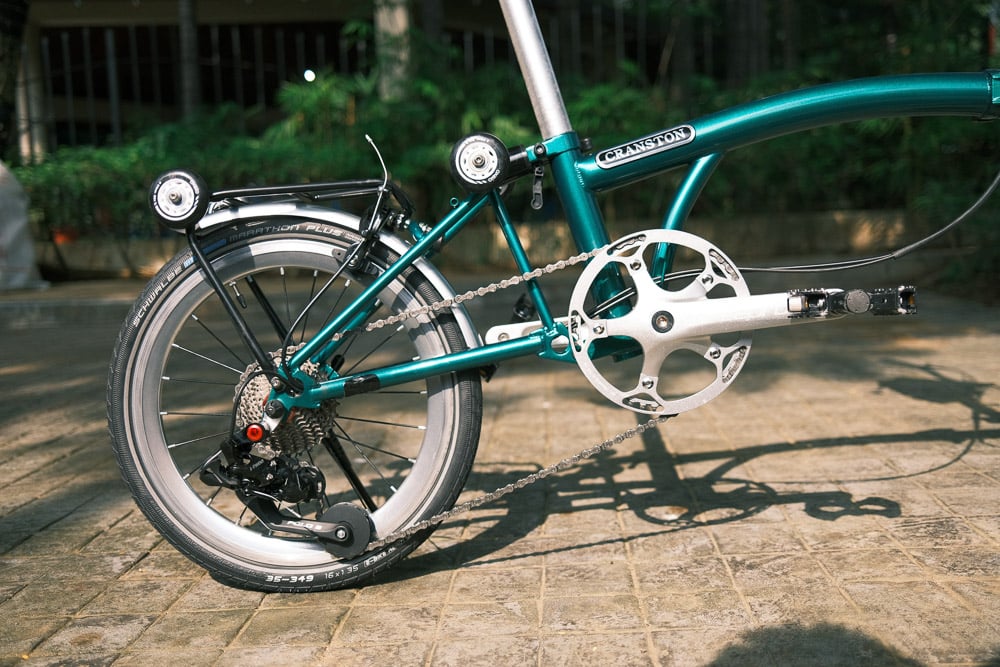
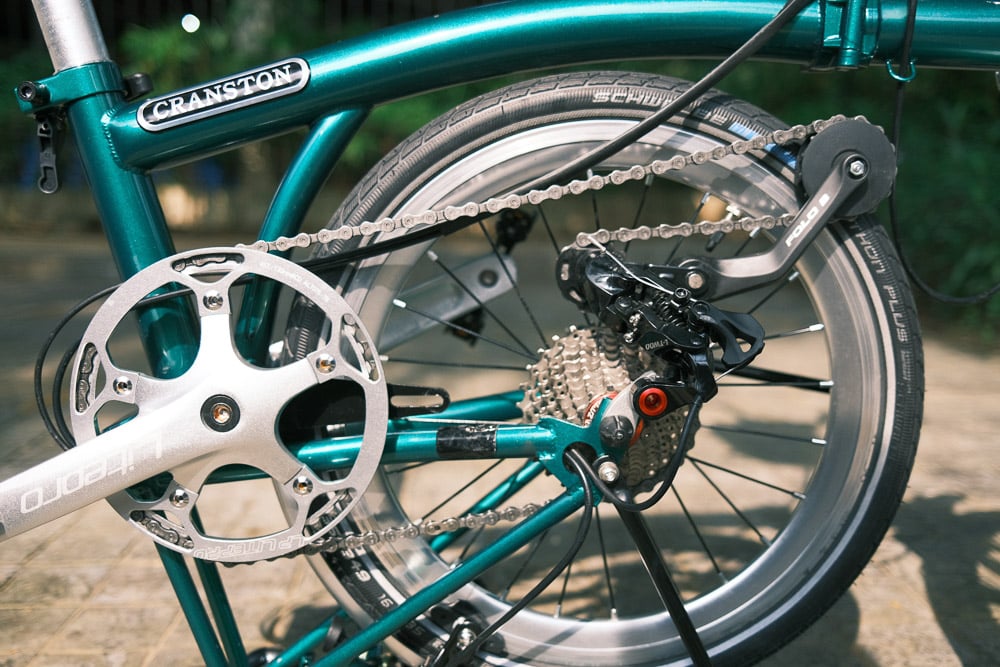
Now, Cranston isn’t the only trifold brand with external gearing as there is also the slightly more expensive Banian from the same dealer. Aside from having better stock components such as the rear rack, the saddle, and the roller wheels, the Banian features a trifold-specific rear derailleur by L-Twoo that eliminates the need for tensioners.
I was able to find the same part on Lazada for P2,000. Installing it wasn’t straightforward. The included derailleur hanger is thicker, so a wider QR skewer is needed. And the hook at the fork needed a bit of adjustment so that the rear derailleur doesn’t tap the sidewall of the tire.
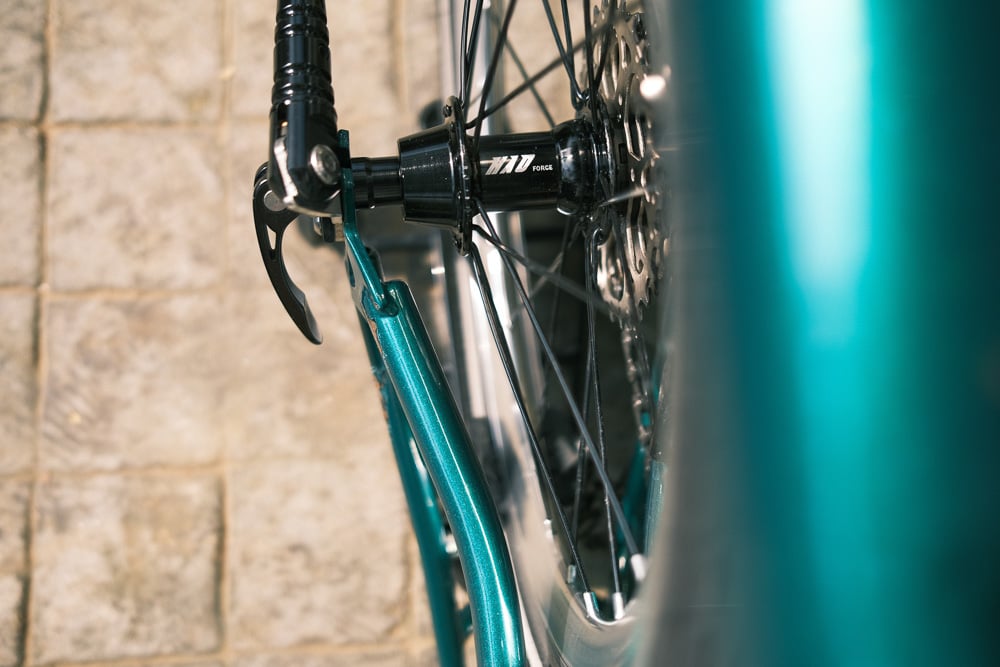
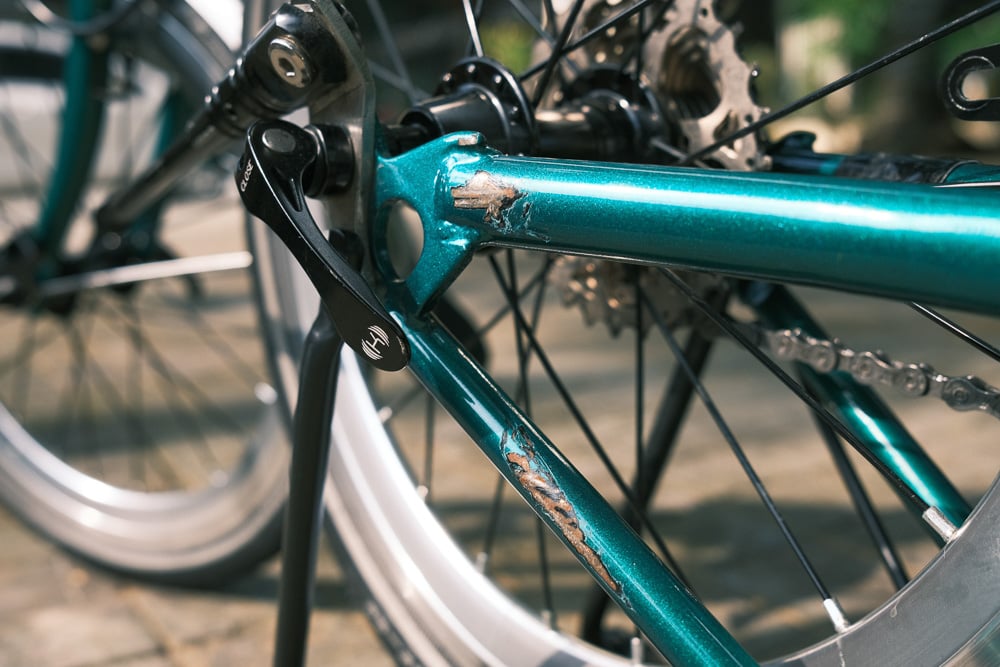
The largest cog the new derailleur could take is 28T, so I also had to order a nine-speed 11-28T cassette to fully maximize the gears. I could have just left it like that, but I also chose to swap the 53T chainring for a smaller one with 45T to maintain the lightest ratio.
If you’re not familiar with the technicals and don’t want to spend the time and the money, there’s no need to do any of this—provided that you learn to live with the previously mentioned quirks. Or for those with the budget, the Banian would be the better choice straight out of the box.
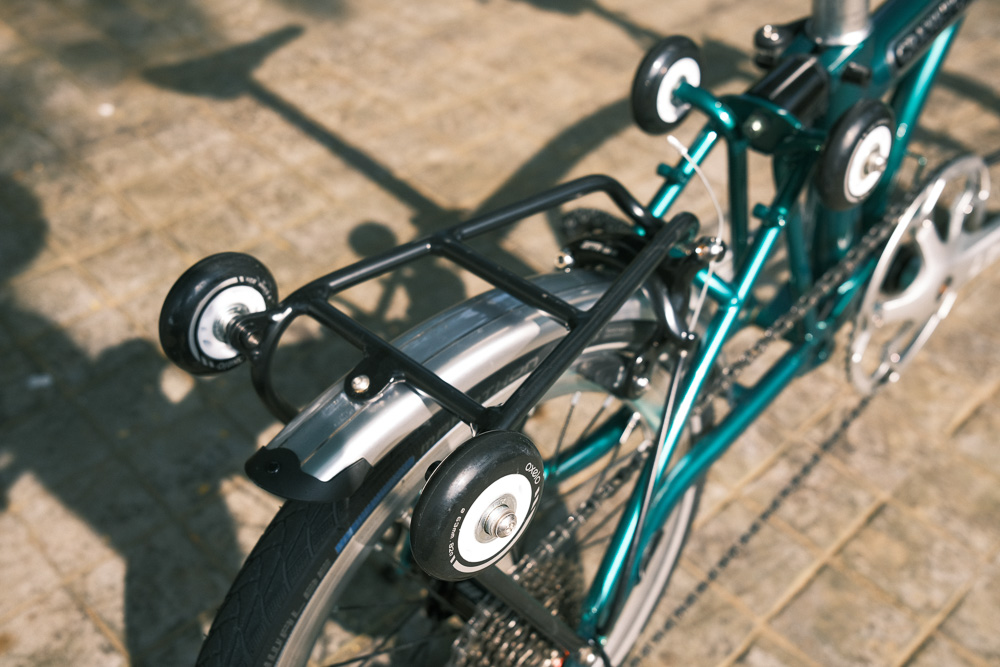
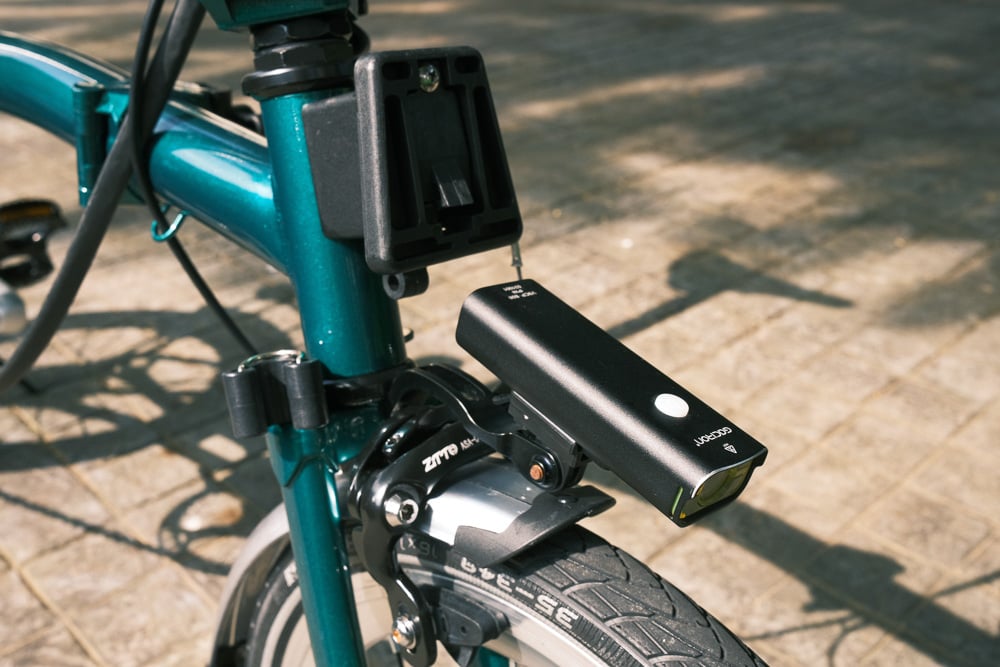
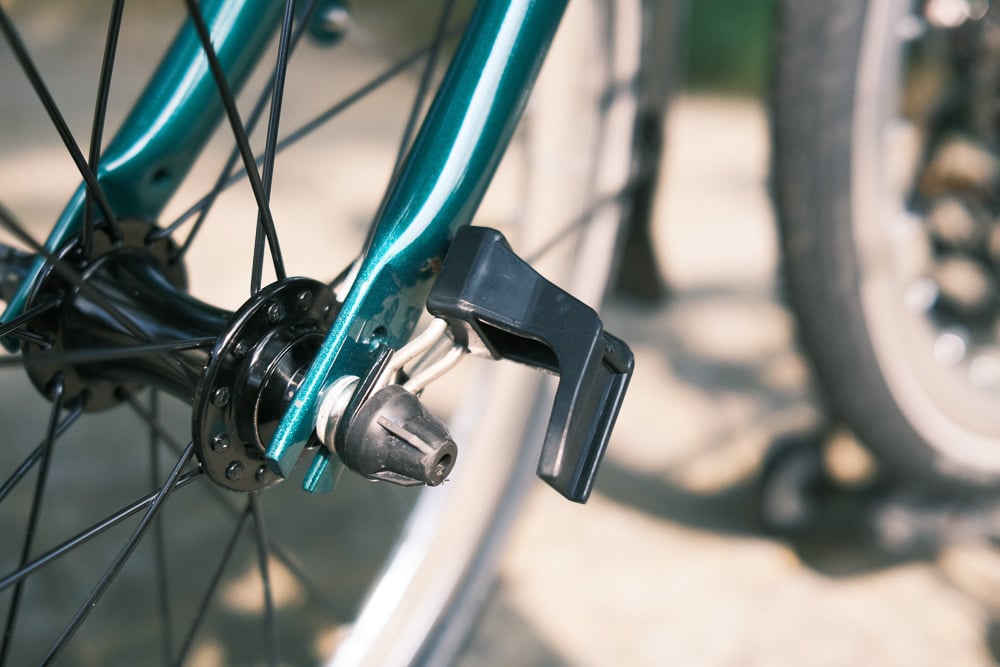
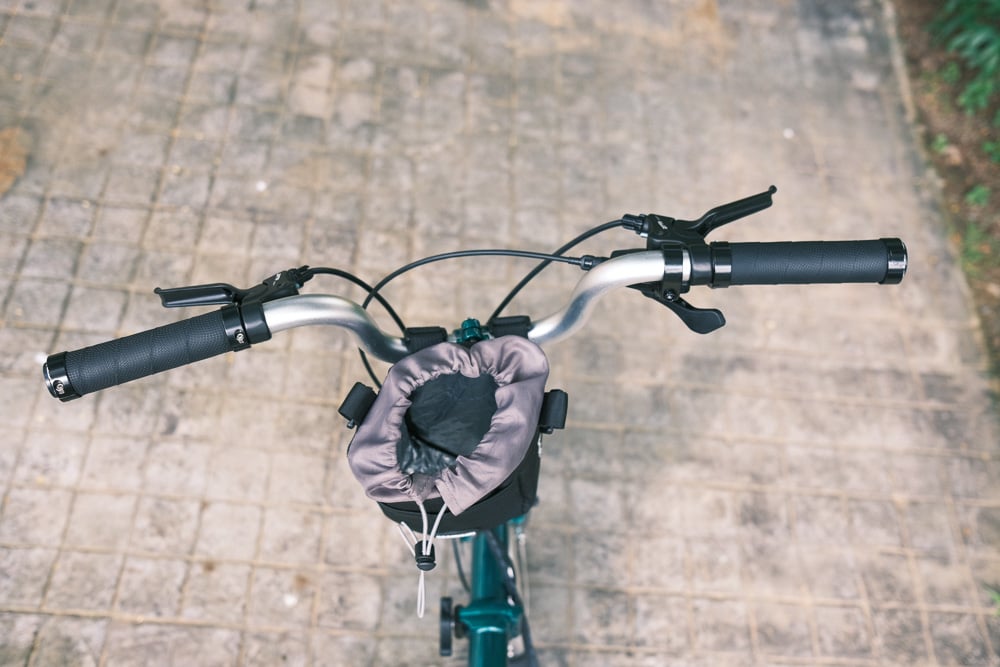
Being a Brompton clone, the Cranston shares similar features such as the front carrier block and the roller wheels at the rear. The raised handlebars are the same except there’s a slight back-sweep that brings the grips closer and makes the riding position even more upright and relaxed.
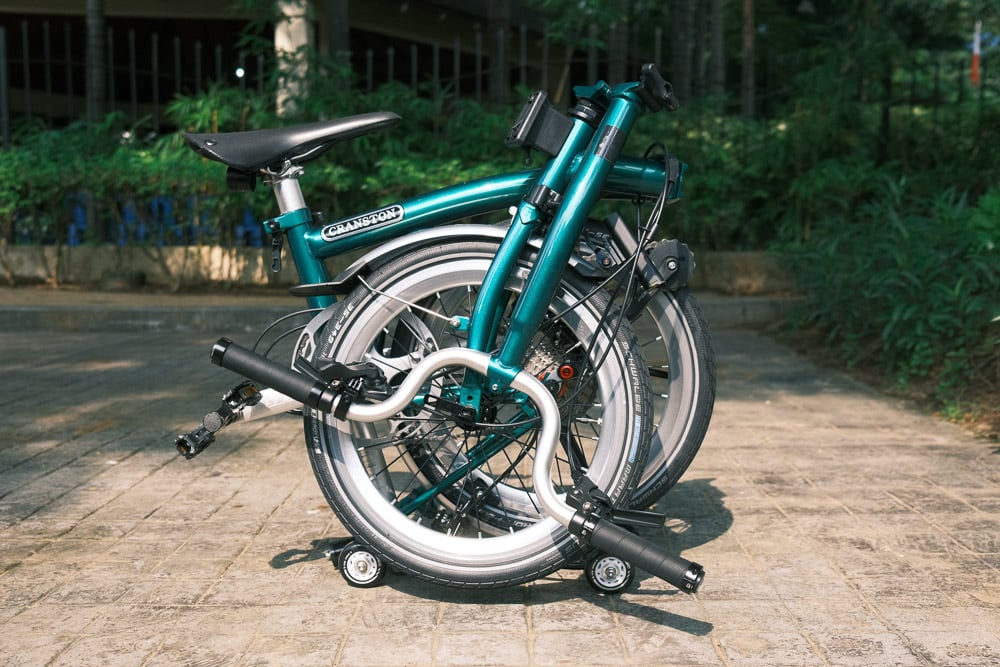
So, why did I go with Cranston? That’s because it’s the alternative that best solves my trifold troubles. I’m not saying that bikes with IGHs are obsolete as they are still usable with some advantages. And others don’t experience problems as frequently as me. But the limited gear range and serviceability can hinder them from being dependable commuters, and that is why those aren’t commonplace today.


0 Comments